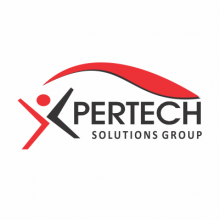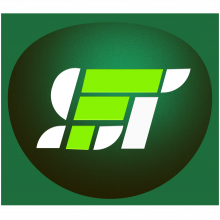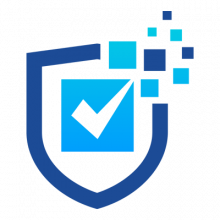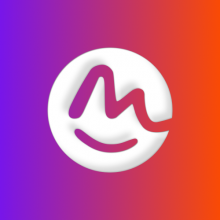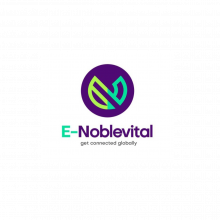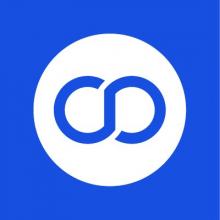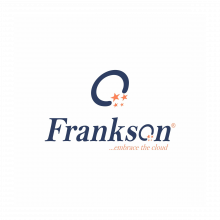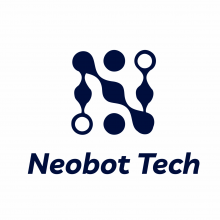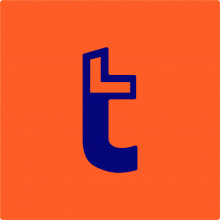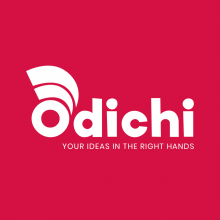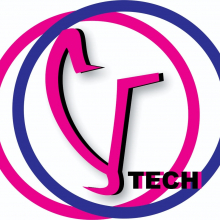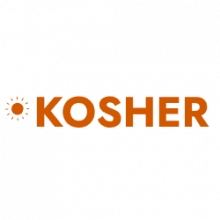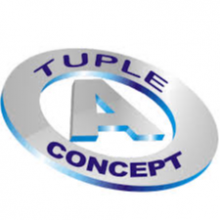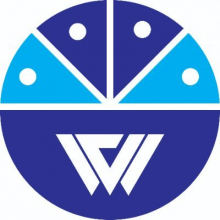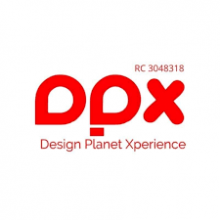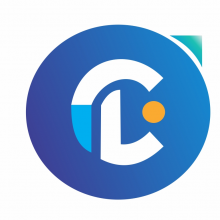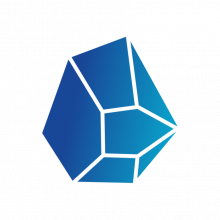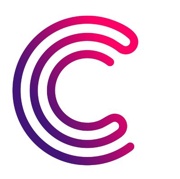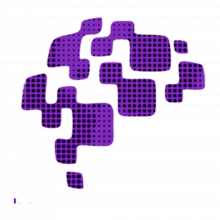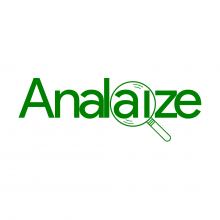
There are 95 Companies in Nigeria
that provide Laravel Development Services!
Nigeria’s ICT sector contributed 19.78% to the country’s GDP in 2024. The telecommunications segment accounts for the vast majority of this, at around $7.6 billion. Other important contributors are broadcasting, data center services, cloud, IT, and BPO. Nigeria’s combination of relatively stable governance, strategic location, and young and innovative population has made it an attractive destination for multinational companies.
Discover Top IT Companies in Nigeria specialized in Laravel and other related services. Find the best IT service providers for your projects.
Laravel is a popular open-source PHP web application framework used for building web applications and websites. It's known for its elegant and expressive syntax, as well as its rich set of tools and libraries that simplify common web development tasks. Laravel was created by Taylor Otwell and released in 2011, and it has since gained widespread adoption in the PHP development community
Handpicked companies • No obligation to hire • 100% risk-free
Featured Companies in Nigeria
This month, the following Laravel Development companies managed to provide an outstanding service and support. It's worth taking a look.
Xpertech Solutions is one of the leading ICT and renewable energy conglomerate providing professional ICT and renewable energy services.
Fire Bee Techno Services is an ISO-Certified Blockchain and AI Development Company In india and across the world with 13+ years of experience.
SkyFig Technologies is an award-winning web & mobile app development company, Your future and vision become our mission at SkyFig we always deliver.
Explore Top Laravel Development Companies in Nigeria
An Innovative IT service provider specialized in Software Development, Blockchain Development, Product Design, Artificial Intelligence, and Training.
One of Nigeria's fastest growing and leading software & MSP equipped with a strong foothold of innovative ideas, seasoned skills & ability to deliver
Mobirevo is a Leading custom software development agency focused on web, mobile app development & saas application development.
we deliver innovative tech solutions that drive online growth for businesses across Africa, Europe, Asia, Oceania, and America.
Services:
We use technology to create undeniably brilliant work for companies with taste.
Services:
The leading information technology company in Lagos, Nigeria. We provide all kinds of IT Services to businesses of all sizes.
Wireless Computer Services is a top website development company using advanced technologies to create visually appealing websites.
Services:
Empowering brands globally. You share your vision with us, and we will provide you with the arsenal to make it a reality.
Vsasf Nig Ltd (Vsasf Tech) is a computer software and IT service provider company. We offer ICT Courses to individuals and organizations in Nigeria.
We help businesses grow online by building strong digital foundations, boosting visibility, and driving kosher results.
Tuplea ICT Concepts, a leading digital solutions agency in Ibadan, offers friendly ICT training online and onsite in web, software, design, and more.
Services:
Venworld Global is a registered software development and media solutions company thriving to take your company setups to the next phase of development
Best website design & development company in Nigeria
Services:
We provide exceptional IT and support services that enable businesses to achieve their goals, improve efficiency, and stay ahead of the competition.
Collaborate | Innovate | Create
Services:
Creative digital Agency
Services:
OmoolaEx is a Nigerian IT consulting firm helping businesses navigate digital transformation through Strategic IT guidance & trusted implementation.
Analaize is a leading Market Research Company dedicated to empowering businesses to achieve accelerated growth through a focus on the customer.
Filter Laravel Development Companies in Nigeria by Cities
Find the right tech company near you or from a specific city. Some of the best companies might be located in smaller cities.
Find more Laravel Development companies around the world
TechBehemoths is the world's most advanced and user-friendly platform to match IT Companies with real clients without hustle.
The ICT Industry in Nigeria : 2025 Report
Nigeria’s ICT sector contributed 19.78% to the country’s GDP in 2024. The telecommunications segment accounts for the vast majority of this, at around $7.6 billion. Other important contributors are broadcasting, data center services, cloud, IT, and BPO.
Nigeria’s combination of relatively stable governance, strategic location, and young and innovative population has made it an attractive destination for multinational companies. Several notable firms, such as Oracle, IBM, Microsoft, Cisco, HP, and SAP, have offices in Nairobi, and some have based their entire African operations from these offices.
Why You Should Work With Nigerian IT Companies
Digital service providers in the cloud and BPO markets are primarily involved in the provision, rather than the development, of services, whereas Nigerian firms are more prevalent in the fintech and e-commerce markets. The physical technology required for the delivery of digital services is typically imported, and it is not clear that Nigeria could produce these products more efficiently.
A key strength in the digital services market is the acceptance of mobile services. Any consumer solution entering the market would have to be mobile-compatible. Mobile healthcare services are expected to grow particularly rapidly as the sophistication of these offerings increases.
In addition, the CEO of Toniceli considers that one of the competitive advantages Nigerian IT companies have compared to those established in neighboring countries is the challenging conditions. Here in Nigeria, we're used to working in challenging and stressful environments. This gives us grit, especially when faced with challenging projects. It's just a part of our nature to face challenges headlong and not to back down.
What to Pay Attention to When Working With Nigerian IT Companies and Web Agencies
On the consumer side, it is vital that any proposed digital service offering be mobile-compatible due to the prevalence of mobile usage in Nigeria. Furthermore, smartphone penetration in the region is steadily increasing, thus increasing the sophistication of viable digital service offerings.
Given the acceptance of fintech by the Nigerian population, a possible route to entry in the consumer market is to acquire one of the many smaller fintech firms in the industry. This would resolve some of the primary barriers to entry, most specifically bureaucratic red tape and a lack of local knowledge.
On the corporate side, the most effective route to entry is likely through partnerships with smaller local resellers. This model is already popular in the Nigerian market. A key differentiating feature here will be how well the service adapts to the Nigerian market.
How Reliable Are Nigerian-based IT Companies?
Considered to be one of the biggest African IT hubs, Nigerian web agencies and IT companies compete only with Ethiopian ones in terms of reliability. As many foreign companies have already invested and thus developed the local IT infrastructure and industry overall, Nigerian IT companies find it easier than other neighboring countries to enter the global market and provide their services at accessible prices.
How Does the Nigerian IT Industry Relate to the Neighboring Countries?
Nigeria is actively trying to establish itself as a key ICT hub in the East African region. The country appears to be making good progress in this regard, helped by having a strong connectivity infrastructure and a young, innovative population. Despite this, the country currently faces considerable political uncertainty, and issues surrounding the transparency of tenders remain a major barrier to growth.
Although Nigeria’s score in the Global Innovation Index 2024 is not high in absolute terms, it ranks 113th in the world. This supports the conjecture that businesses, government, and consumers will be receptive to new technologies, as ICT has already had a substantial impact on the Nigerian economy.
The Business Environment in Nigeria
The CEO of Toniceli - a leading Nigerian IT company, Oluwayomi Olabanjo, states that the Nigerian business environment is growing rapidly. Most business environments are still very much clustered in the city of Lagos, but over the years, there's been an expansion in economic clusters in other cities. There had been challenges in infrastructure, policies, power, and access to professional training and education. However, things have been getting better over time, especially with the coalition of private and public enterprises addressing these challenges headlong. I would say the biggest factor we've had working for us in the Nigerian market is the availability of youthful talent and the increasing flow of foreign and local capital into the market.
What Makes Nigeria Attractive for International IT Companies?
Oluwayomi Olabanjo mentions on this topic that what makes it attractive is the abundant supply of youthful talent. However, unstable government policies, infrastructure, and power shortages are challenges, making it unattractive for international IT companies.
Yet, the Nigerian Communications Commission had been doing quite a lot with the startup bill and also with the establishment of public-private incubator programs within the country. I really do believe they should be given credit for this.
Lagos, Ibadan - Best Cities for Doing IT business in Nigeria
Lagos, because it has always been the economic hub of the country, hence the IT industry has found it quite easier to experience growth in that space.
Ibadan due to the fact that it is a fast-growing economic hub and also, and there's less capital expense in setting up and running a company here. - mentioned Oluwayomi Olabanjo.
What is Laravel and what are its benefits for your projects?
Laravel is a popular open-source PHP web application framework used for building web applications and websites. It's known for its elegant and expressive syntax, as well as its rich set of tools and libraries that simplify common web development tasks. Laravel was created by Taylor Otwell and released in 2011, and it has since gained widespread adoption in the PHP development community. Here are the key aspects and features of Laravel:
-
Elegant Syntax
-
MVC Architecture
-
Artisan CLI
-
Database Abstraction
-
Blade Templating Engine
-
Middleware
-
Authentication and Authorization
-
Routing
-
Caching
-
Testing
-
Security
-
Community and Ecosystem.
-
Scalability
When choosing a PHP framework for a project, there are several alternatives to Laravel, each with its strengths and use cases. The choice depends on project requirements, familiarity with the framework, and specific preferences. Here are some notable PHP frameworks that often compete with Laravel:
-
Symfony: Symfony is a high-performance PHP framework known for its flexibility and modularity. It is often used for large, enterprise-level applications. Laravel actually uses several Symfony components under the hood. Symfony provides robust tools for building web applications, APIs, and microservices.
-
Zend Framework (Laminas): Zend Framework, now known as Laminas, is a mature framework that focuses on building scalable and enterprise-grade applications. It provides a collection of reusable components for various tasks, allowing developers to choose and integrate only what they need.
-
CodeIgniter: CodeIgniter is a lightweight and straightforward framework that emphasizes simplicity and speed of development. It's often chosen for smaller projects and rapid application development (RAD). While it has a smaller feature set compared to Laravel, it's known for its minimal learning curve.
-
CakePHP: CakePHP is a full-stack framework that focuses on convention over configuration (CoC). It comes with features like scaffolding, a built-in ORM, and a friendly community. It's known for its simplicity and convention-driven development.
Companies specialized in providing services using Laravel can significantly benefit relevant projects. Their expertise in Laravel development allows them to efficiently create customized web applications that meet specific project requirements. With a deep understanding of Laravel's capabilities, these companies can ensure the project benefits from Laravel's robust features, clean code structure, and security mechanisms.
They expedite development using Laravel's built-in tools and extensive package ecosystem, making them well-suited for both small-scale and enterprise-level applications. Security is a top priority, with specialists implementing best practices to protect against common web vulnerabilities, enhancing the project's safety, especially when dealing with sensitive data.
After the project launch, these specialized companies offer ongoing maintenance and support, addressing issues, applying updates, and ensuring the application's long-term reliability. They also excel in integration with third-party services and technologies, expanding the application's functionality and enhancing the user experience.
In addition, some companies may offer UX and design services, further improving the project's visual appeal and usability. Through rigorous testing and quality assurance, they identify and resolve potential issues before deployment, ensuring the application performs reliably across various devices and browsers.
